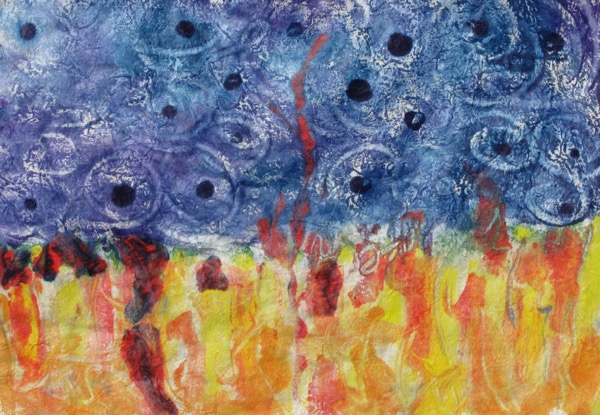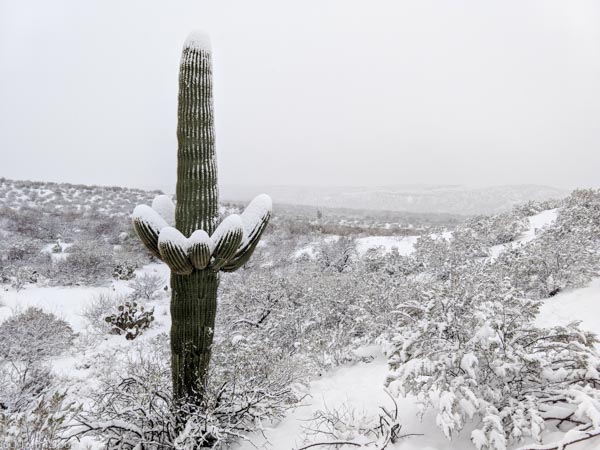Part 4: Polarities
 March 5, 2019
March 5, 2019 
Dad wasn't one to reach out. He didn't like the phone, and as he aged he wrote fewer and fewer emails. Over the past years I got used to long stretches of time without hearing from him. Now that life is starting to return to normal again after his passing, it is easy to forget that he is gone. It startles me when I suddenly remember—he’s dead. I come across a draft of an email to him that I didn’t send and realize that he will never read it. Or I imagine him sitting down to eat dinner where he has sat for the past 50 years, before realizing that not only is he gone, but so are the chair and the table.
Last month I was flying back to Arizona from Seattle and passed over Cascade Locks on the Columbia River where Dad worked for awhile as a young man. I always think of him when I am near this place and try to imagine his life here; or imagine how he would feel about this place now, so many years and miles away from those experiences. I feel a jolt in my stomach this time, as though I pulled on a rope and no one was holding the other end. These thoughts have always been a connection between me and my father, like I could touch him from wherever I was. Suddenly that connection is slack—and I feel as startled by that as if I had suddenly fallen backwards, the rope snapping toward me in a loose pile.
We have moved to another spot in Cascabel—a place that someone else owns—with a yurt, a screen room, composting toilet, and outdoor shower. It had been unoccupied for awhile and we have done some cleanup and repair. I keep catching myself wanting to tell Mom and Dad what we are doing. There is no substitute for a parent, not even other family members. And it is in the transitions that I especially miss their physical presence—those times when something in my life is changing.
There is something about watching a parent who seemed so fearsome when you were a child weaken in old age. An image arises of Dad walking across the lawn from his truck this summer at the Fourth of July party. A nephew of Mom's is visiting for the day and Dad has a home movie from the 1950's of a Christmas when this man was a little boy. Dad has his iPad in one hand and cane in the other, and has driven across the farm to my brother's house to show this video to his nephew. His frailness as he lists across the thick grass, the vulnerability of his eagerness to show the video, his slightly awkward social timing—all of this pulls at my heart, even now.
Part of me still feels shock and confusion about how a person who is part of the foundation of my life can suddenly just disappear, can be here one moment and gone the next. Part of me is still grieving. Most of the time, though, I don't think about it. Life goes on. I get busy, get swept up into daily life. And that makes the pain sharper, I think, when I am suddenly reminded of the absence.
A man at the rest area walks slowly at the elbow of his elderly father. My tears come suddenly as I watch them shuffle together toward their car.
*******
For weeks after I got back from the farm after the memorial, whenever I meditated on my chakras the only one that was active was my first—the family chakra, group energy, belonging, community. All the rest of them were shuttered, dark, tiny lights buried somewhere deep inside. Finally, I got curious about this, explored a little deeper.
I find that I am staying on the level of the physical with my grief—I am not allowing my other feelings, which, once I look at them, are surprising, almost shocking. What my spirit feels about Dad’s death, what I have been suppressing, I can only describe as joy. A bright light encompassing me and everything around me.
It is like Dad spent his whole life—even as capable as he was—caught up in a tin can. And now all that energy is free. It is as though a flame has been lit—both inside me and around me. I feel energy flowing through me that is not my energy. I feel held. Peaceful. Content.
Light and dark, risk and safety, autonomy and community—these polarities cannot be resolved one way or the other. Somehow they exist together, simultaneously. Somehow they negate each other and define each other all at once. Somehow we need both.
I am beginning to know this too about death—that the grief of the body and the joy of the soul are intertwined. I no longer believe I can deny one in favor of the other. They are both essential. I miss my parents deeply AND I am joyful at their presence. I long for what I used to have AND I feel new energy. There is no “but” anywhere in those sentences. They all exist together, all connected.
...the tree, the bark, the root, the fruit, the seed, the life that animates it all...
*******
And then there is love. As I talk to a friend awhile ago I find myself saying to her, “I think part of what hurts right now is how much love I feel. It’s so intense—like a pain in my heart.” I am taken by love as though I have been struck by a wave on the beach. I feel love for my siblings, for my nieces and nephews, for my ancestors, for my friends and clients back in Seattle, for the people we are getting to know here in Cascabel, for the land and mountains and plants and rocks and animals. I find myself trying to manage this love, this pain, by limiting it—by understanding it or by restricting it to certain people. But it is like Dad’s death (and everything associated with it) released some kind of dam that kept me bound up in cause and effect, and beyond these individual forms we take for awhile is a universe of energy.
This is a little like the perspective of riding in an airplane. From that vantage everything seems elegantly connected, part of a larger pattern, beautiful.
But what happens when I come back to earth? Once landed, here come all the same old difficulties—irritations, frustrations, disappointments. People who don’t do what I want, suffering that is out of my control. I can feel this immense love one moment, then be hurt and angry the next.
Again, I remind myself, you can do both. The difficulties don't negate the love. And the love doesn't mean you ignore the difficulties. When I am connected to both I have both perspective AND empathy. I know that "all will be well" at the same time that I am willing to deal with what is here in front of me.
We are big enough to hold it all.
